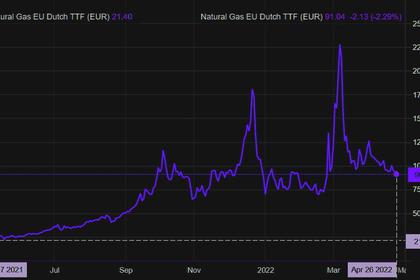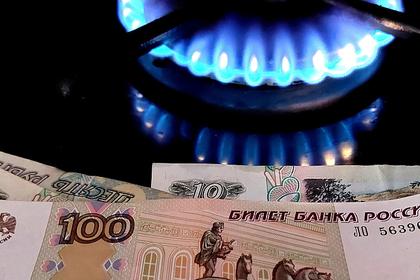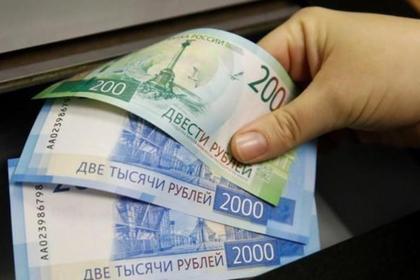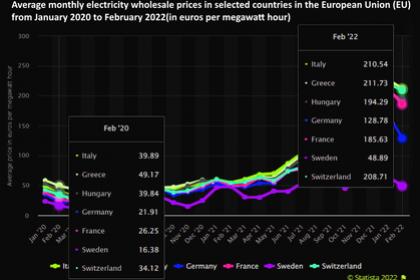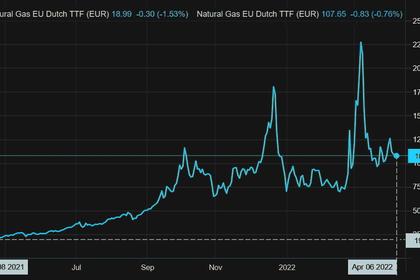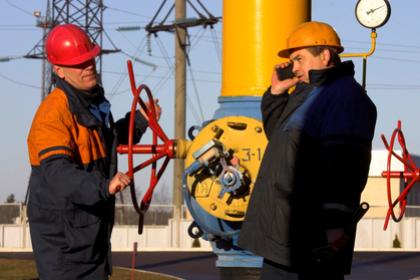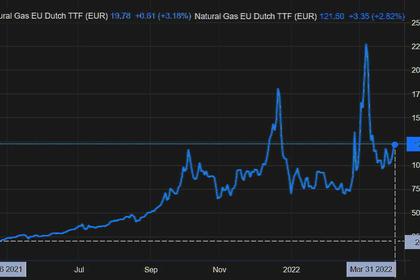
EUROPEAN GAS PRICES UP
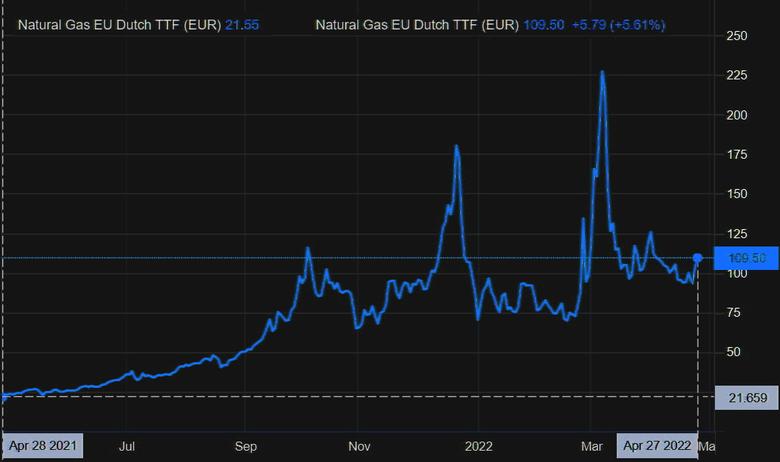
PLATTS - 27 Apr 2022 - European gas prices soared in early trading April 27 after Russia's state-controlled Gazprom said it had fully suspended gas deliveries to Bulgaria and Poland due to non-payment in rubles.
The move comes after both countries were informed April 26 of the impending cut-off should they not comply with the new payment terms. The TTF front-month price surged by as much as 28% in early trading April 27 to as high as Eur125/MWh, according to ICE data.
The contract was last assessed on April 26 by S&P Global Commodity Insights at Eur98.03/MWh. It was trading at some Eur115/MWh as of 0800 GMT.
"As of the end of the business day on April 26, Gazprom Export had not received payments for gas supplies in April from Bulgargaz (Bulgaria) and PGNiG (Poland) in rubles," Gazprom said in a statement.
The company added that counterparties were informed in good time that payments for gas supplied from April 1 must be made in rubles using the new mechanism.
Russian President Vladimir Putin signed a decree March 31 stipulating that EU buyers must pay for Russian gas in rubles via a new currency conversion mechanism, or supplies could be suspended.
Gazprom also said it would reduce transit deliveries in equivalent volumes if there was unauthorized offtake in Bulgaria or Poland.
"Bulgaria and Poland are transit states. In case of unauthorized withdrawal of Russian gas from transit volumes to third countries, supplies for transit will be reduced by this volume," Gazprom said.
The new payment system added to existing fears about security of supply to Europe after Russia invaded Ukraine Feb. 24. In addition to the risk of damage to infrastructure from the conflict, European opposition to the invasion and sanctions have seen a significant deterioration in Russia's relationship with sanctioning countries.
Both Bulgaria and Poland have said they would not need to take any restrictive measures yet on gas consumption.
The Bulgarian ministry said it had fully fulfilled its obligations and made all payments required under its agreement with Gazprom "in a timely manner, strictly and in accordance with its clauses."
It said that after an analysis by the state company Bulgargaz and the Bulgarian Energy Holding (BEH), it was found that the new two-stage payment procedure proposed by Russia was not in line with the existing contract and posed "significant risks" to Bulgaria.
These include making payments without receiving any gas supplies from the Russian side.
"The ministry of energy, BEH, Bulgargaz and Bulgartransgaz have taken steps to make alternative arrangements for the supply of gas," it said. "At present, no restrictive measures are required for consumption in Bulgaria."
Import contracts
PGNiG imports Russian gas under a long-term import contract due to expire at the end of 2022, and officials have repeatedly said they would not extend it.
Last year, PGNiG imported 9.9 Bcm of Russian gas, meeting around 63% of demand.
Its imports from Gazprom accounted for around 53% of consumption in Q1, according to the latest PGNiG data.
Poland also transits Russian gas via the Yamal-Europe pipeline, taking volumes at the border with Belarus at Kondratki and transiting the gas onto Mallnow on the border with Germany.
However, flows into Mallnow have been mostly zero since late 2021 and gas regularly moves instead in the reverse west-east direction.
For Bulgaria, a 10-year supply agreement between state gas importer Bulgargaz and Gazprom for the supply of up to 2.9 Bcm/year of gas is due to expire at the end of 2022.
Bulgaria in mid-March ruled out talks with Gazprom on a new gas import agreement, while the conflict in Ukraine continues, and instead pledged to continue to deal with alternative suppliers.
Sofia has said there are alternatives to Russian gas and that there is capacity in the Trans-Balkan pipeline that could be used in reverse flow.
Bulgaria has historically been almost entirely dependent on Russian gas imports, which used to be supplied via the Trans-Balkan pipeline, together with very small volumes of domestic production.
Since the start of 2020, Bulgaria imports its Russian gas via the TurkStream pipeline and last year imported an estimated 2.8 Bcm via the route, according to S&P Global Commodity Insights data.
It also imported some 0.5 Bcm of gas from Azerbaijan via the Southern Gas Corridor and can also import regasified LNG landed at Greece's Revithoussa terminal.
Supplies via the Southern Gas Corridor are expected to ramp up to the contracted 1 Bcm/year level once the Interconnector Greece-Bulgaria becomes operational, expected in July this year.
Serbian transit
Bulgaria also acts as a transit country for Russian gas deliveries to Serbia and Hungary, and Belgrade has urged Sofia to continue transporting Russian gas carried by TurkStream to Serbia in the future regardless of Bulgaria's own arrangements.
Serbian President Aleksandar Vucic has asked for a guarantee that Bulgarian transit would continue given that Serbia paid fees for the service.
Serbia imports Russian gas via TurkStream and the Bulgarian onshore network, though its long-term agreement with Gazprom expired at the end of 2021.
Russia and Serbia agreed to continue supplies until June 2022 pending a new long-term agreement.
Moscow also agreed to keep the price of Serbian supplies at the current rate of $270/1,000 cu m until the end of June 2022.
Serbia expects to finalize a new 10-year agreement, reportedly for up to 3 Bcm/year of Russian gas, in May.
Gazprom and Serbia's Yugorosgaz, which is itself co-owned by Gazprom, in 2013 signed a long-term contract for gas supply to Serbia until end-2021.
In 2017, they agreed to increase the volume to 2 Bcm/year, from the 1.5 Bcm/year provided for in the original contract starting 2018.
Gazprom sold a total of 1.35 Bcm of gas to Serbia in 2020 when demand was affected by the pandemic. In 2019, supplies were higher at 2.14 Bcm.
-----
Earlier:
